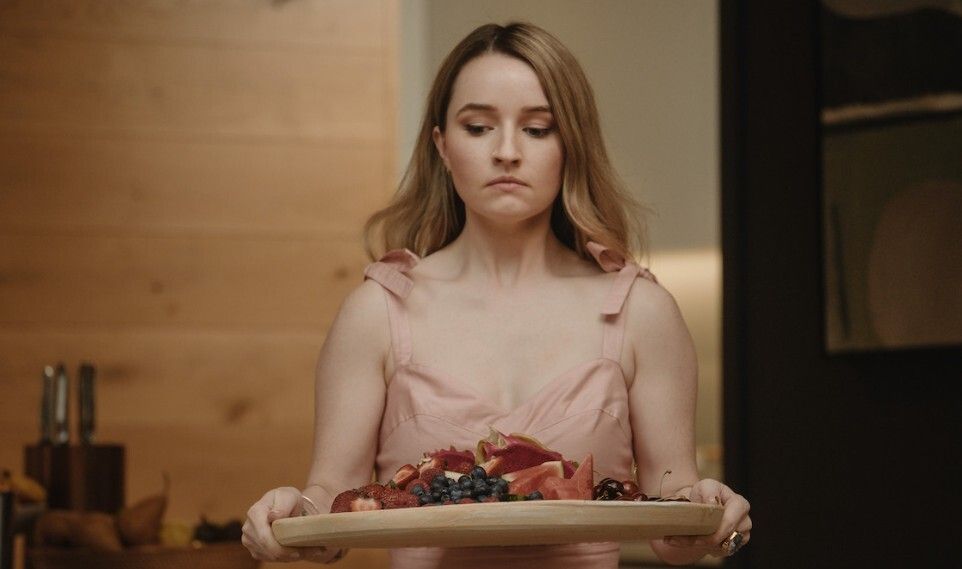 Kaitlyn Dever as Belle Gibson in Netflix show Apple Cider Vinegar.
Kaitlyn Dever as Belle Gibson in Netflix show Apple Cider Vinegar.If, like me, you spent an entire weekend watching, talking about and reading about Netflix’s new show Apple Cider Vinegar — a dramatisation of Australian wellness influencer Belle Gibson’s ill-fated career — you’ve probably wondered how wellness ever got so far.
For a quick recap, the show follows two wellness influencers as they purport that ‘natural remedies’ can heal life-threatening diseases, such as cancer. One of the influencers, Belle, is lying about having brain cancer. The other influencer, Milla, actually does have cancer and tries to heal it ‘naturally’.
In the show, at least two people die as a result of following their advice and one of the women also eventually dies after rejecting modern medicine.
It’s a chilling depiction of just how scary the world of wellness can be, especially when combined with the wide-reaching possibilities of social media.
How did Belle Gibson manage to win so many people over?
Speaking to Netflix, Alycia Debnam-Carey — who plays Milla Blake in the series — says: “At that time during 2010, social media and this kind of exploitation of wellness, and the way you looked and what you were supposed to be, there was no boundaries.
Director and co-executive producer Jeffrey Walker adds: “It was early influencer, early Instagram — that idea that you could put something out in the world, and that amount of love and support that you’d get fed back that just hadn’t existed in any form prior to that.”
Why are we so drawn to alternative health, anyway?
On their website, leading cancer charity Cancer Research UK says that people may reach for alternative therapies and treatments in search of a cure: “Some people believe that using specific alternative therapies instead of conventional cancer treatment might help control or cure their cancer. There are also people who promote alternative therapies in this way.
“Using alternative therapy can become more important to people with advanced cancer if their conventional treatment is no longer helping to control it. It is understandable that they hope that alternative therapies might work.
“But, there is no scientific evidence to prove that any type of alternative therapy can help to control or cure cancer. Some alternative therapies might be unsafe and can cause harmful side effects.”
You don’t have to rule it out entirely, though
Cancer Research UK also urges that alternative treatments can complement conventional medicine, saying: “Many complementary therapies are safe to use alongside conventional cancer treatments. Such as radiotherapy or chemotherapy. Most doctors will support you using one or more types of complementary therapy.
“Some complementary therapies can help people to feel better. Some help to reduce symptoms and side effects. But some types might not be safe in certain situations. For example, some might stop conventional treatments working as well as they should.”
If you are thinking of taking this route, they advise speaking to your doctor first and telling your alternative health practitioner that you are undergoing cancer treatment.
Help and support:
- Mind, open Monday to Friday, 9am-6pm on 0300 123 3393.
- Samaritans offers a listening service which is open 24 hours a day, on 116 123 (UK and ROI - this number is FREE to call and will not appear on your phone bill).
- CALM (the Campaign Against Living Miserably) offer a helpline open 5pm-midnight, 365 days a year, on 0800 58 58 58, and a webchat service.
- The Mix is a free support service for people under 25. Call 0808 808 4994 or email help@themix.org.uk
- Rethink Mental Illness offers practical help through its advice line which can be reached on 0808 801 0525 (Monday to Friday 10am-4pm). More info can be found on rethink.org.


